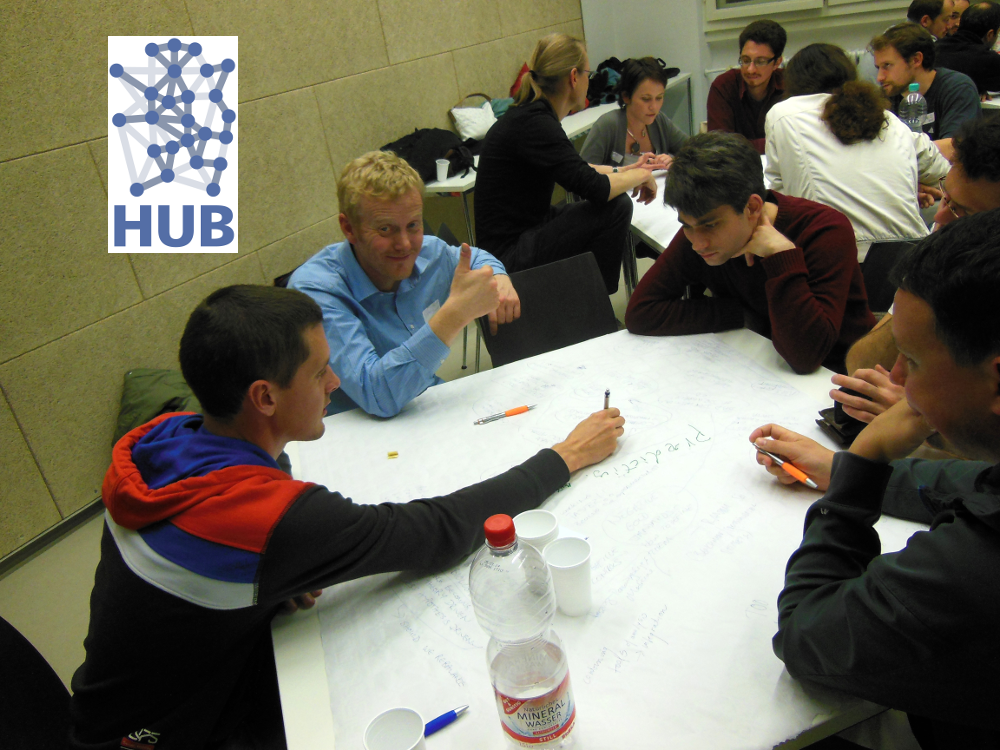HITS scientists building bioinformatics networks

HITS scientists Jonathan Fuller and Xiaofeng Yu have been involved in co-founding the Heidelberg Unseminars in Bioinformatics (HUB) along with colleagues from HITS and other research institutes and companies in Heidelberg (EMBL, DKFZ, Uni Heidelberg, Cellzome and more). HUB eschews some of the typical formats used to spread scientific ideas such as conferences and seminars, instead allowing participants to get involved directly by suggesting topics, presenting ideas and providing the opportunity for discussion and networking. in an article published recently in PLOS Computational Biology, HUB members presented ‘Ten Simple Rules for Organizing an Unconference‘.
But Unconferences (or their shorter form, unseminars) aren’t just for bioinformaticians! Perhaps you might like to try some of the ideas yourself, or come and see what HUB is up to: www.hub-hub.de.
Several HUB members noticing how important professional networks are for them, went on to organize a workshop ‘The “How To Guide” for Establishing a Successful Bioinformatics Network’ at the Intelligent Systems for Molecular Biology conference. During this conference participants from high-profile international organizations shared their insights into how professional networks are essential at the largest scales (e.g. ELIXIR, the European infrastructure for biological information, BMBF Virtual Liver Network, H3ABioNet a Pan African bioinformatics network) and smallest scales (HUB, VanBUG Vancouver Bioinformatics User Group). Many participants contributed to summarizing their ideas in the article ‘A Quick Guide for Building a Successful Bioinformatics Community‘ in PLOS computational biology. These two recently published articles lead on from a previous HUB article, with contributions from HITS by Jonathan Fuller (MCM) and Alexandros Stamatakis group leader of the SCO group, ‘Biggest Challenges in Bioinformatics’, EMBO Reports 2013).
About HITS
HITS, the Heidelberg Institute for Theoretical Studies, was established in 2010 by physicist and SAP co-founder Klaus Tschira (1940-2015) and the Klaus Tschira Foundation as a private, non-profit research institute. HITS conducts basic research in the natural, mathematical, and computer sciences. Major research directions include complex simulations across scales, making sense of data, and enabling science via computational research. Application areas range from molecular biology to astrophysics. An essential characteristic of the Institute is interdisciplinarity, implemented in numerous cross-group and cross-disciplinary projects. The base funding of HITS is provided by the Klaus Tschira Foundation.